Swiss open their homes to Ukrainian refugees
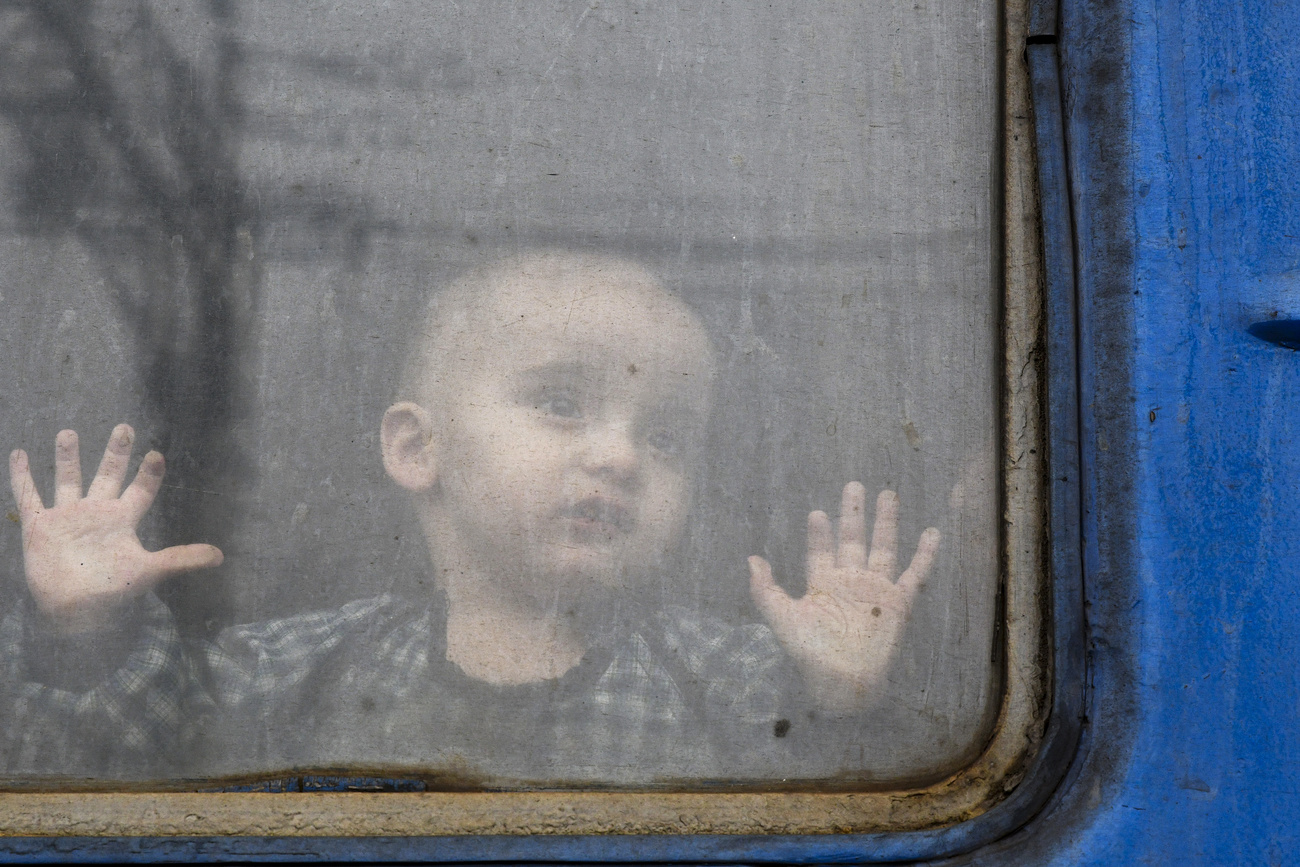
As Russia’s brutal war in Ukraine continues, Europe is facing its biggest refugee crisis since the Second World War. Western governments including Switzerland are welcoming Ukrainian refugees. But with numbers ever increasing, private homes are also needed to welcome them. We look at why and how host families in Switzerland are being “matched” with refugees, and in some cases finding each other.
The war that started on February 24 has so far displaced some 10 million Ukrainians from their homes, with more than 3.5 million already in other countries, according to the United Nations High Commissioner for Refugees (UNHCR). Although most of the refugees are in neighbouring countries, especially Poland, they are also travelling west. In Switzerland, nearly 13,000 have registered so far, and “many more people will be coming here”, says Andreas Freimüller, co-founder of CampaxExternal link, which is one of the organisations appealing for Swiss homes for refugees from Ukraine.
Tens of thousands of ordinary people in Switzerland have already offered to host refugees, and many people want to help however they can. “What each of us can do may be just a small step,” says Milena Novak, a 39-year-old Polish national living in Zurich who has taken a Ukrainian mother with two children into her home. “But if you cannot provide a room, you can donate money or clothes. Those small steps will add up and become a big support.”
Unprecedented welcome
The Swiss government has confirmed that people fleeing the war in Ukraine are eligible for a temporary ‘S’ permitExternal link to live and immediately work in Switzerland. The permit, initially valid for a year, has never before been activated, although it was introduced in the 1990s in response to the Bosnian war. It is an open-door reaction to a huge, unfolding tragedy but also contrasts sharply with some other refugee situations such as Syria or Afghanistan.
“This is reminiscent of Switzerland’s response after the 1956 Soviet invasion of Hungary and the 1968 invasion of Czechoslovakia,” says Freimüller of Campax. “We were part of the Cold War. It’s close to us emotionally.”
Eliane Engeler, spokeswoman for the Swiss Refugee Council, which is overseeing the placement of refugees from Ukraine in host families, thinks it is mostly the Swiss government response that differs from other refugee situations, and that Swiss citizens have always been generous to refugees, as seen during the 2015 migrant crisis. “I think what we have seen in the past is big solidarity from the Swiss population,” she told SWI swissinfo.ch. “That’s not the same as federal policy.”
“Most of the refugees being women and children might also be a reason to draw a great deal of attention,” says Laure, 48, a French national living in the western Swiss canton of Vaud who has opened her home to a Ukrainian mother and her daughter.
The high number of women and children contrasts with other refugee situations like Syria where there were many young men. Ukraine has introduced martial law in response to the Russian invasion, requiring men aged 18-60 to stay and fight.
Matching refugees to host families
This factor also poses risks and challenges for the “special protection” of the refugees. UN Special Rapporteurs have warned of a heightened risk of human traffickingExternal link and sexual violence, especially with regard to women and children. So how are the refugees being matched to new temporary homes in Switzerland?
Freimüller says Campax has developed software to help with matching, but it is the Swiss Refugee Council (SRC), an independent body, which is co-ordinating placing refugees in private homes. Engeler says there are several criteria, including geographical preferences, as some refugees already have friends and relatives in Switzerland and wish to be close to them. Then there is obviously the question of matching people to available places, whether they have pets, and trying to find families where there is a common language like English, French or Ukrainian.
As for safety, she says potential hosts’ criminal records are checked, and if there is any hint that there is risk of abuse they are ruled out. The SRC works with local partners such as Caritas and the Swiss Red Cross to ensure the refugees’ matching with host families. It also provides both the refugees and hosts with numbers to call if there are problems, and the SRC has a hotline they can use. “The family is also visited by our local partners,” Engeler told SWI swissinfo.ch.
Host families must offer accommodation for at least three months, but if after that they can’t continue, the SRC will work with its partners to find alternative arrangements, according to Engeler. Ideally, the hosts provide accommodation until the refugees are financially independent and can find their own places to live. Asked about dealing with trauma, she says severely traumatised people and unaccompanied minors are not placed in private homes.
With regard to financial support, refugees with an ‘S’ permit are entitled to social benefit payments from the cantons and have a right to work. It is up to the cantons to decide if they also provide some financial assistance to the hosts, says Engeler.
Too slow?
As part of efforts to ensure the refugees’ security, the SRC advises them not to accept private offers. Milena Nowak registered on Campax but then accepted a family who contacted her directly on Facebook. The family arrived two weeks ago and has already started their new life.
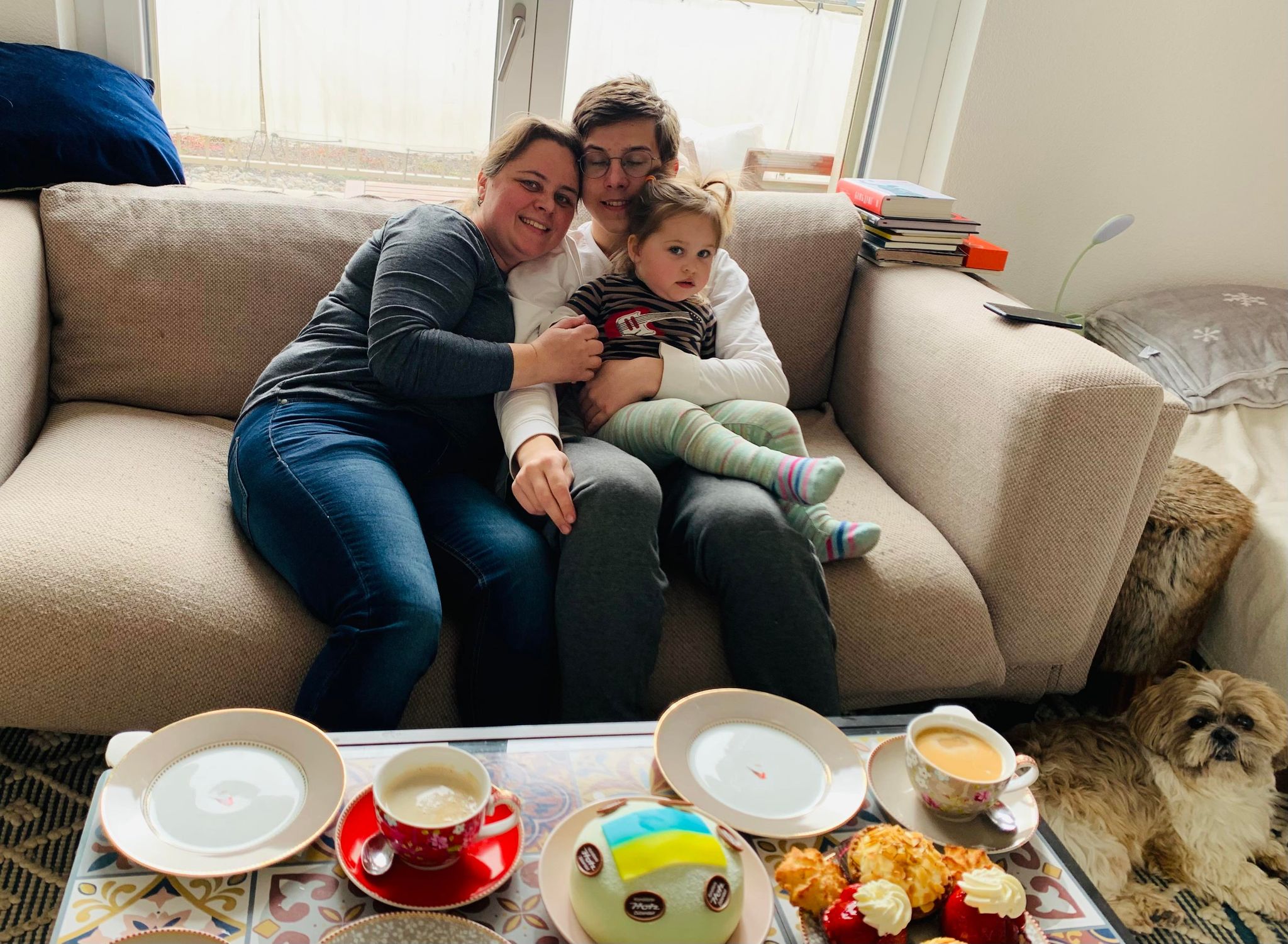
More
‘Please save us, I want my family alive’
Milena understands that it is “a right process” for the government and organisations to do background checks to prevent human trafficking and sexual exploitation. But she says social media can often react to refugees’ needs much faster and more flexibly. While private initiatives are discouraged, both Milena and Laure have previous experience of helping refugees and victims.
In Switzerland, there have been over 60,000 offers of beds, with many people waiting for their match.
Laure also signed up for Campax. But when she saw on Facebook that a resident in her town was going to pick up several refugee families at the border, she contacted him to host one of them. She contacted Campax and got a green light.
Laure says she provides daily necessities such as clothes and food for the Ukrainian mother (53) and her daughter (16), who are staying in a guest room. She did not even enquire with the authorities about subsidies for hosts, as “we are fine doing this for a few months”.
Her main concern at the moment is how the refugees’ financial independence can be ensured. She hopes that the ‘S’ permits will be issued as soon as possible along with food stamps and other subsidies so that they can live without financial worries. “It is difficult for them to receive and not contribute, even though we say we are fine with it,” Laure told SWI.
Both Milena and Laure say they are happy being a host, the local municipality was very helpful, and the children have already started attending local schools. “It is a very positive and fulfilling experience for the hosts,” says Laure.

In compliance with the JTI standards
More: SWI swissinfo.ch certified by the Journalism Trust Initiative










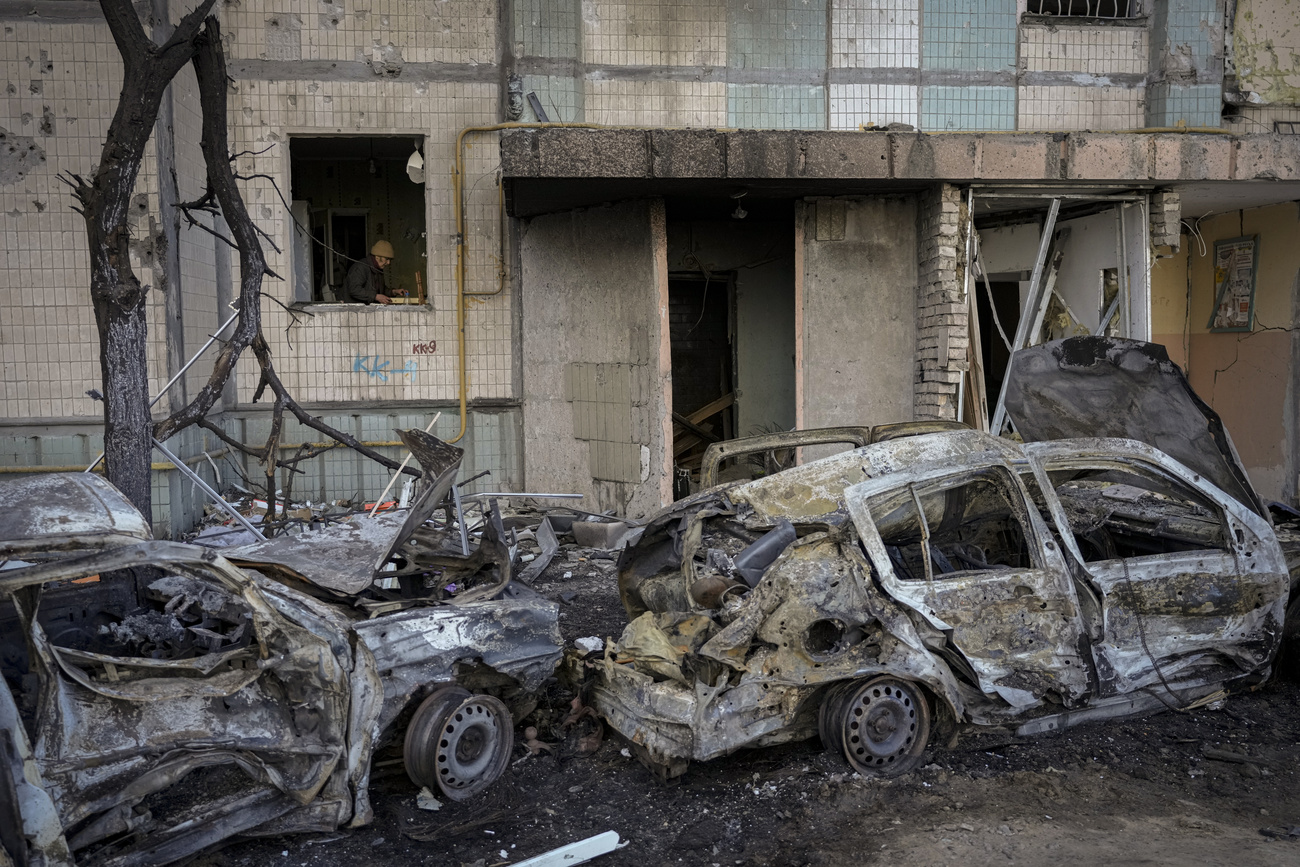
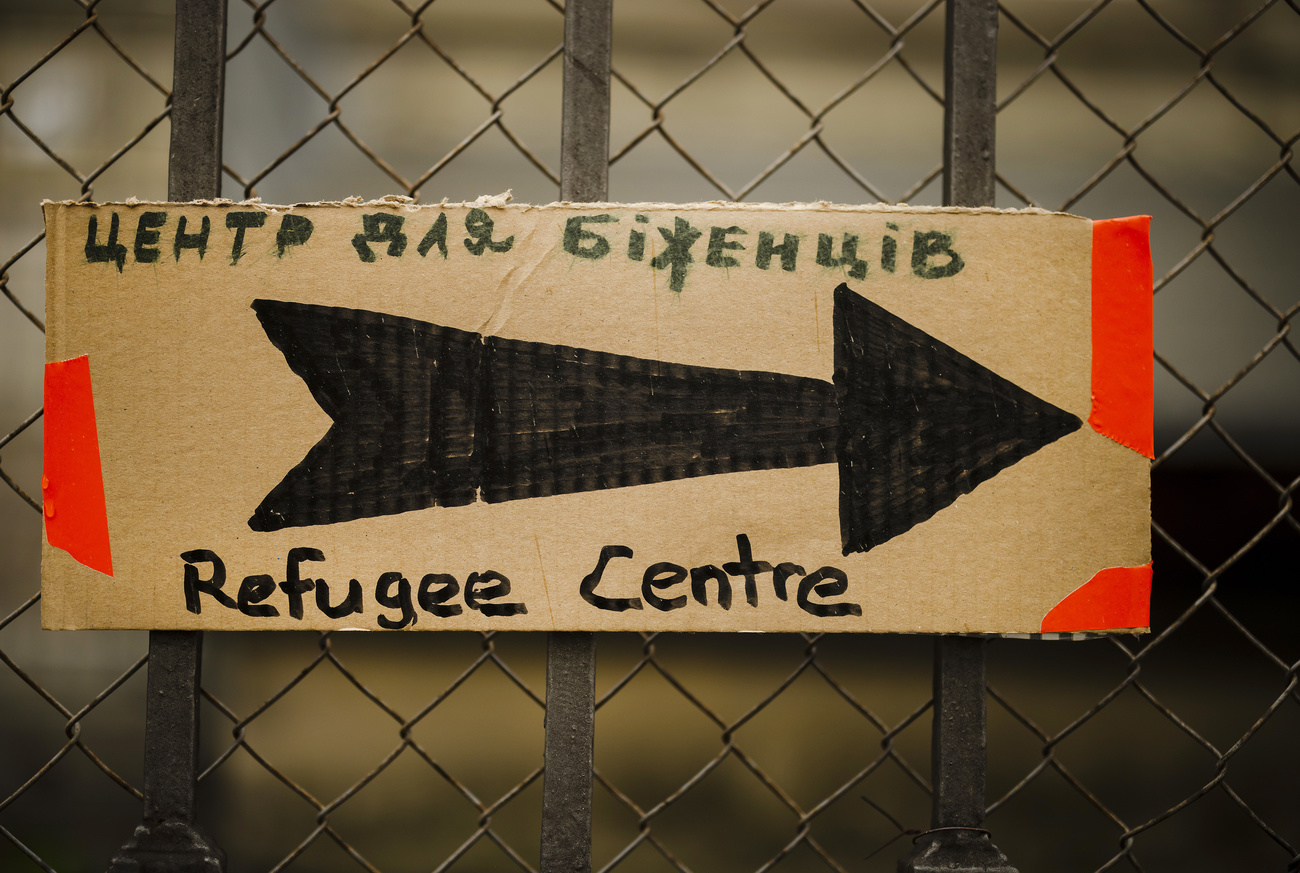
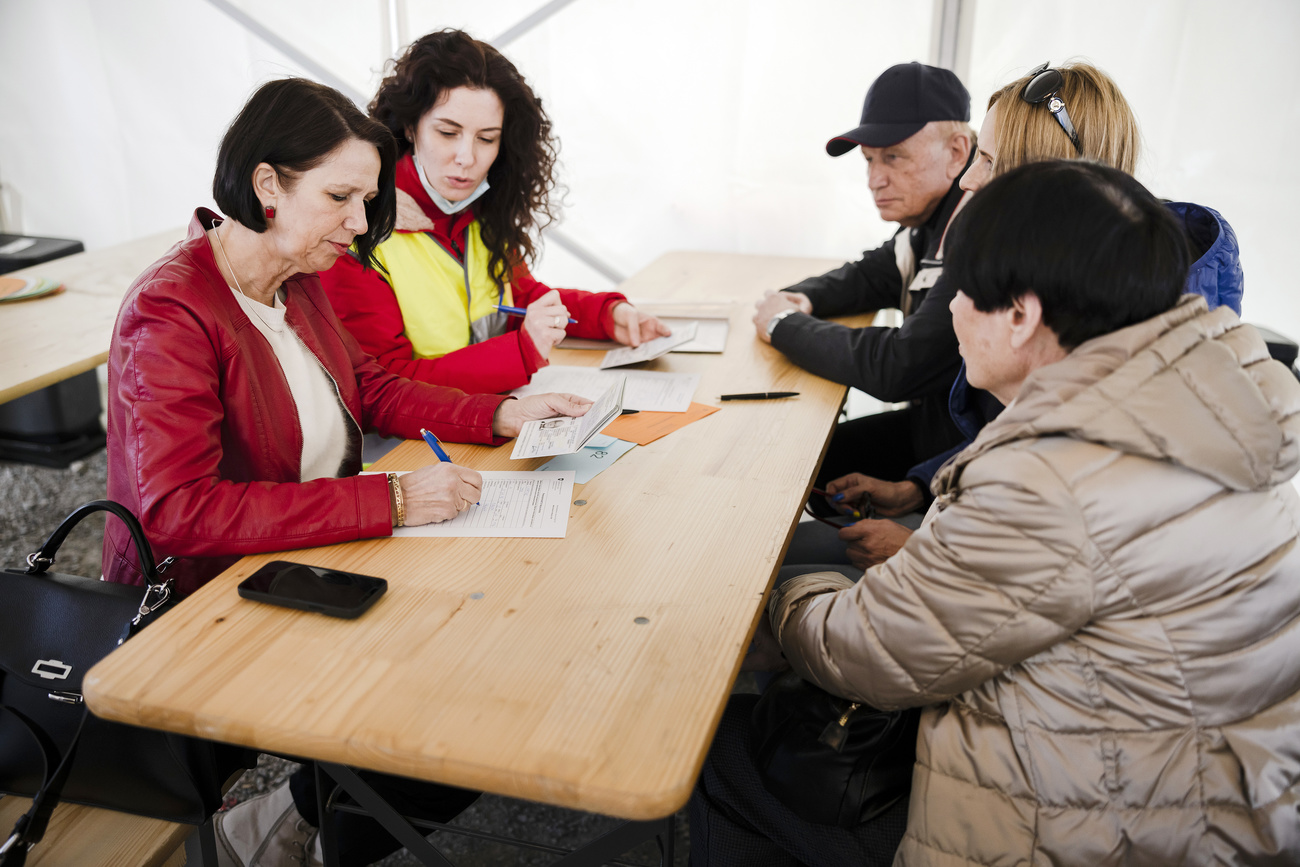
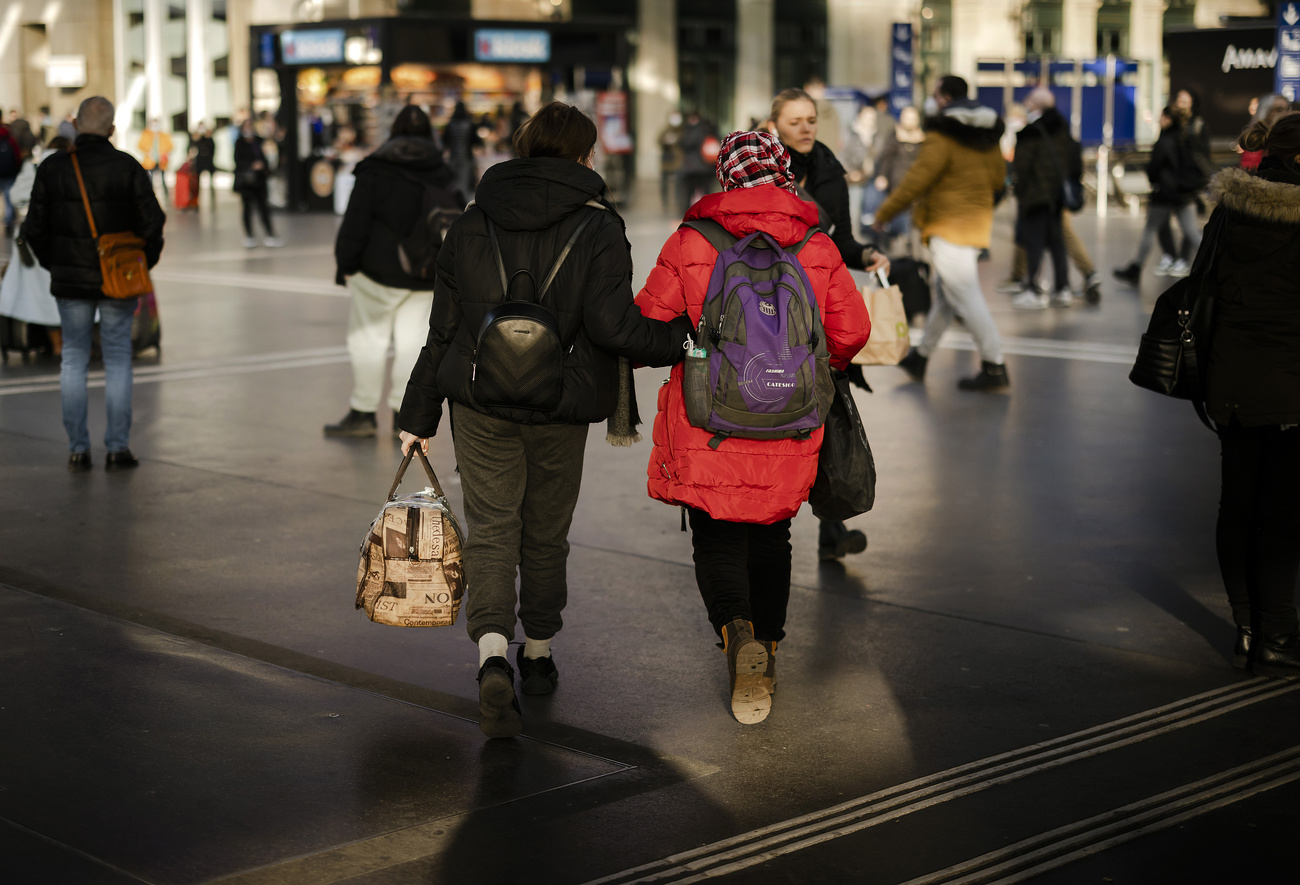
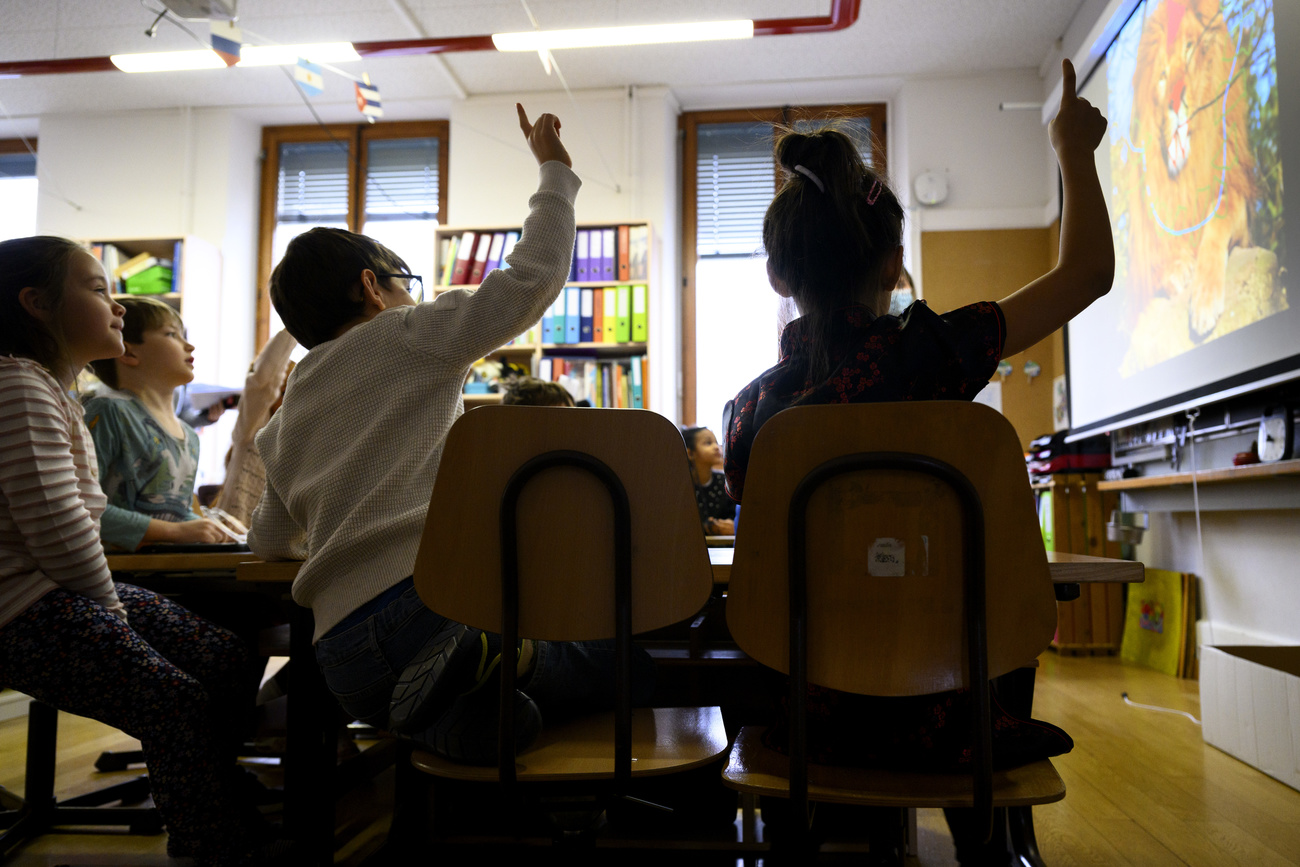
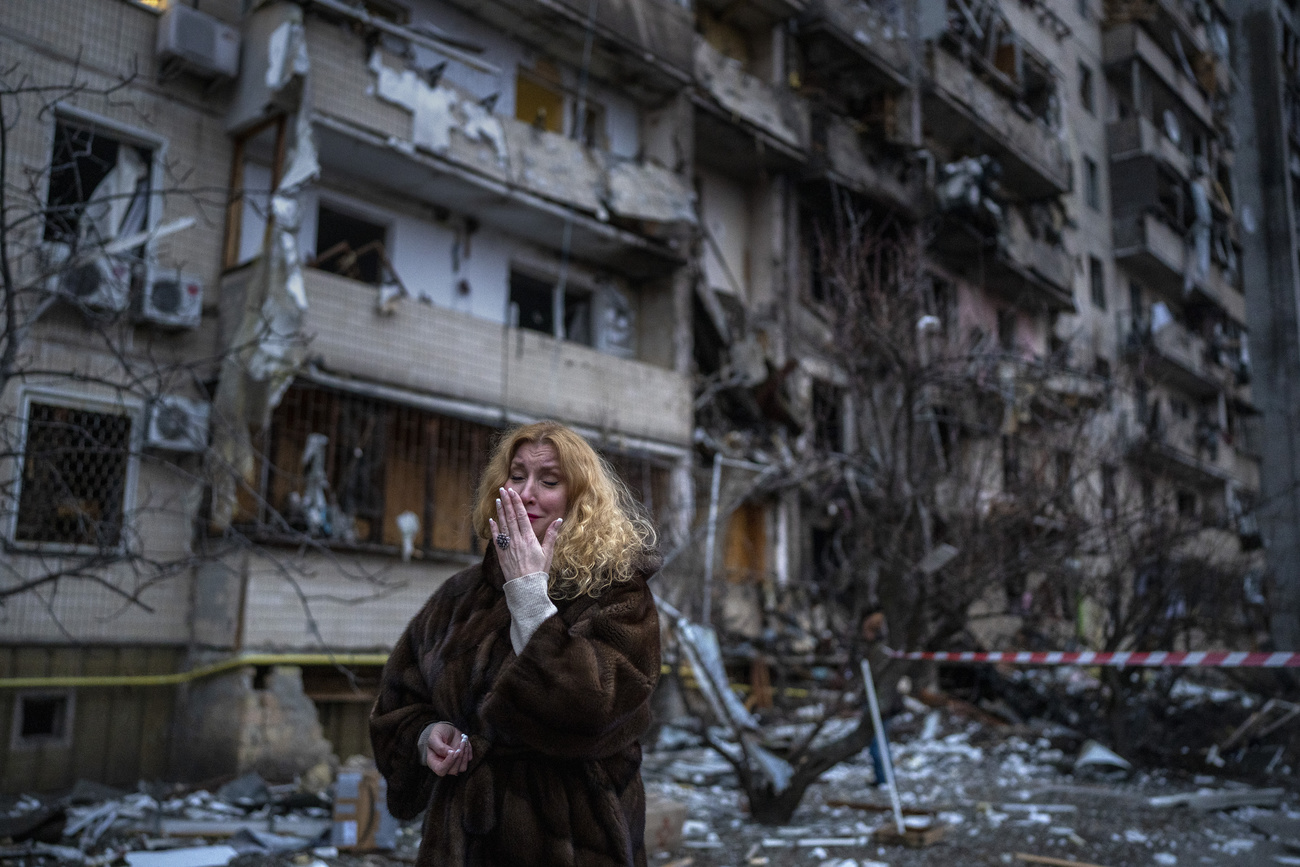
You can find an overview of ongoing debates with our journalists here . Please join us!
If you want to start a conversation about a topic raised in this article or want to report factual errors, email us at english@swissinfo.ch.